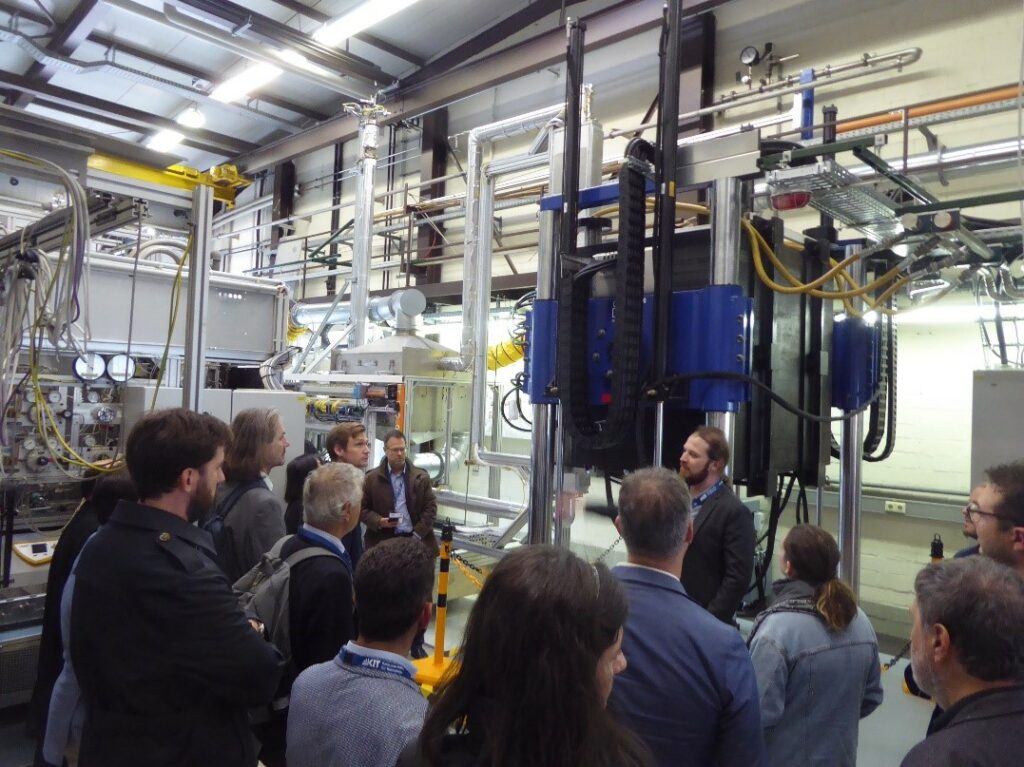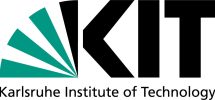At the labs of the Karlsruhe Institute of Technology, Germany, a newly refurbished research facility was inaugurated on 14 October 2022. The Magnetohydro-dynamic PbLi Experiment or MaPLE will investigate magneto-hydrodynamic effects in a liquid metal flowing in magnetic, temperature, and gravity fields. MaPLE uses a mixture of molten lead and lithium, providing an attractive option for producing the fusion fuel tritium in future fusion power plants. Some forty international guests joined the colloquium and site visit to celebrate the new facility.
Future fusion power plants will run on deuterium and tritium, a mix of two heavier variants of common hydrogen. Deuterium is available in almost limitless amounts in the world’s oceans, but tritium will need to be produced on-site in breeding blankets from the abundantly available metal lithium. MaPLE was originally built at UCLA university in the U.S. to study materials and conditions in such breeding blankets, and was transfered to KIT under an arrangement with EUROfusion to continue experiments that had been started in a EUROfusion-UCLA collaboration.
KIT has long-term experience in investigations of liquid metal flows in strong magnetic fields for fusion applications, which makes it the ideal home for MaPLE. The facility will be instrumental in the EUROfusion work packages on breeding blankets, aimed at supporting the international fusion project ITER and at studies for the European demonstration fusion power plant DEMO. Tony Donné stated: “KIT operates many excellent technology facilities. Their inventory of important EUROfusion Technology Hubs is constantly being renewed, with MapLE being the latest add-on and new facilities being about to come on line. It will be open for joint experimentation to all EUROfusion laboratories working on the liquid metal breeding blanket concept.”


